A question of belief:
Administrators say staff faith requirement is clear; others disagree
Calvin faculty must sign a statement of faith commitment, but policies for staff are less clear.
Hiring policies at Calvin came under scrutiny last year during controversy surrounding the university’s split with the former Center for Social Research — a split which was motivated by administration learning that then-CSR employee Cole Sweda was in a same-sex marriage, a violation of Calvin policies for staff. Attention to the CSR split focused on this policy, but Sweda was also charged with a second policy violation: not being a Christian. While Calvin’s policy against LGBTQ+ employees engaging in relationships has caused controversy on-and-off for decades, the question of a faith requirement for staff had largely flown under the radar.
Administrators and former CSR directors disagree about whether Calvin had or has a staff faith requirement, and the staff handbook publicly available online is unclear on the issue. While the answer will not change what occurred in 2022, it could impact current and future staff as well as hiring practices.
Provost Noah Toly stated in a Dec. 2022 Chimes story that Sweda violated two policies: one of marriage, the other of religious belief.
“We learned that Cole Sweda was not a Christian, and — with the exception of student employees — Christian faith is a basic qualification for hiring and ongoing employment at Calvin University,” Toly told Chimes later. “We expect hiring managers and supervisors to share the responsibility of ensuring that our practices are consistent with this requirement.”
This “basic qualification” remains disputed. In a letter to Chimes, former CSR directors Neil Carlson and Laura Luchies stated they were not aware that Sweda was violating such a policy and had confirmed with administrators that they did not need to consider Christian faith in hiring during a 2021 hiring cycle. Carlson and Luchies were not aware that a staff faith requirement violation had a role in administration’s concerns about Sweda until Nov. 2022, about nine months after the split.
“I want it to be clear to everyone that no CSR employee (not Cole [Sweda], not Neil [Carlson], not me, not anyone) was aware that one of our team members was violating a policy of sexual relations or of faith,” Luchies told Chimes. “We were not trying to hide anything or get away with anything.”
Administrators, however, feel that Calvin’s documents are clear about these policies.
“Because faith permeates everything that we do at Calvin University, our faith expectations, commitments and requirements are found in a variety of places, including our foundational documents, the staff handbook, the HR Careers page and our communications to applicants through our Workday platform,” Andrew George, associate vice president of human resources, said. “All prospective Calvin University employees are asked to describe their Christian faith and explain how they feel about their place in Calvin’s mission, which is explicitly faith-based. Having an active Christian faith is a requirement for all staff. This was the case in the fall of 2021 and is the case now.”
The staff handbook publicly available on Calvin’s website considers “sexual misconduct, including sexual relations outside marriage” a fireable offense and elsewhere defines marriage as “a covenantal union between a man and a woman,” but the handbook does not address the issue of a faith requirement for staff.
The Human Resources career page states that faculty and staff “engage [Calvin’s] mission in how we do our jobs and how we live our lives” and notes that “Calvin reserves the right to give preference in employment based on religion.” Current Calvin job postings note: “A commitment to the Christian faith and to the integration of faith, learning, and student development,” as part of the job description.
Carlson and Luchies told Chimes they investigated the issue of a staff faith requirement in the fall of 2021. As they transitioned their standard application to Workday, they had discovered an automatic question about Christian faith.
Carlson had an email exchange with administrators regarding the question, in which he stated that he was happy to abide by Calvin’s position, but it was not clear to him what that position was. What ensued, according to Luchies and Carlson, was “a friendly conversation, but we were not provided with a written policy or guidelines or training, and no one offered to take responsibility for interpreting and enforcing policy on our behalf. There was no suggestion that we were skating on proverbial thin ice.”
Carlson and Luchies contacted CSR’s supervising dean, David Wunder, and George to determine whether they were required to consider answers to that question in their hiring process.
For his part, Wunder did not have a firm answer to offer and encouraged CSR leadership to seek clarity from human resources.
CSR leadership met with George on Oct. 7, 2021.
“We told Andy that several former and current CSR employees — all current Calvin students or alumni — were not Christian,” Carlson and Luchies told Chimes in an email. “[George] explained that staff do not have to be Christian, but that Christians may be more comfortable working at Calvin than non-Christians are. Andy said that the question helps applicants learn about Calvin’s culture and discern whether Calvin is a place they want to work.”
There is no transcript of the meeting, and parties involved remember it differently. According to Carlson and Luchies, Luchies “directly asked whether we had to use responses to this question when making hiring decisions,” and George stated that they did not need to. George told Chimes, however, that he does not feel this is an accurate portrayal of his conversation with CSR leadership.
CSR leadership were not aware of administration’s concern about a staff faith requirement policy violation by Sweda until Nov. 10, 2022, when it was raised at a meeting.
“Calvin administrators never asked Cole about his religious beliefs,” Carlson and Luchies wrote. “On what basis, then, did Calvin conclude that Cole was among the CSR employees who were not Christian?”
It is not clear how the administration learned that Sweda was not a Christian, nor that this was accurate information.
The employee handbook states that the university uses “religious faith, confessional commitments and church membership as conditions of employment for faculty and administrators with faculty status,” yet does not specify whether these conditions apply to non-faculty employees. George did not respond to Chimes’ request for direction to a university document specifying that these conditions also apply to staff.
While clarity about the university’s staff faith policy won’t change the past, it remains a live issue for staff still employed at Calvin, as well as those involved in the CSR split, like Carlson and Luchies, who say they still want to set the record straight.
“Let’s set the story straight. There is still no explicit faith requirement for staff and no “violation” of this non-existent policy was a factor in the CSR separation from Calvin,” Carlson and Luchies wrote.






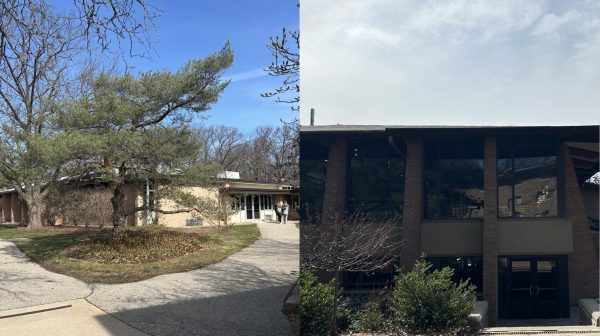
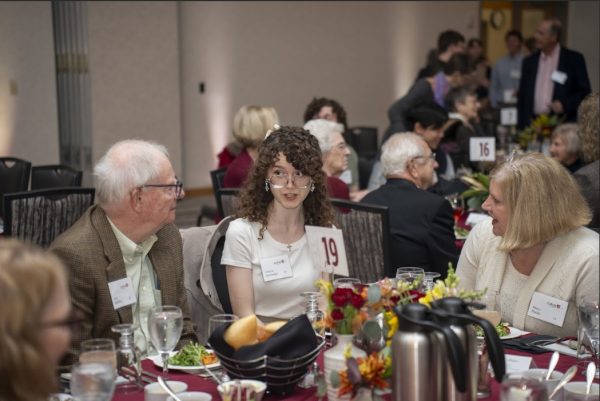
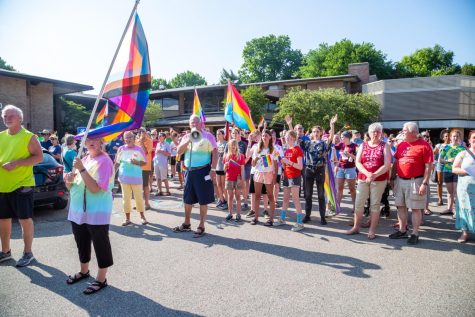
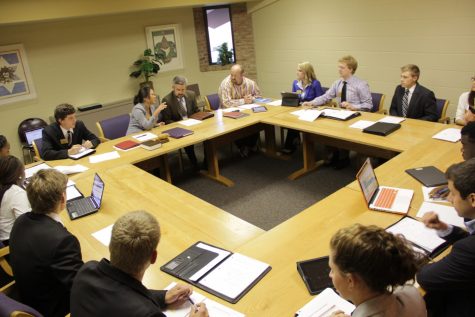
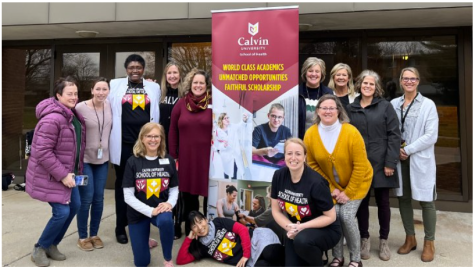

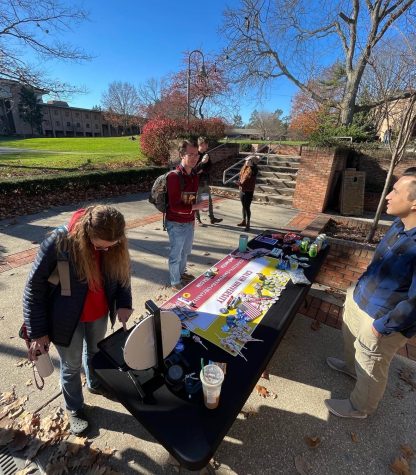
Laura Luchies • Jan 16, 2023 at 8:37 am
If there is a faith requirement for Calvin staff (non-faculty) employees:
– Why isn’t it in the staff handbook?
– Why, when we (leadership at the former Center for Social Research) asked if there was such a requirement via email, did HR respond “it’s complicated”? (It doesn’t have to be complicated… just put it in the handbook and direct us there.)
– Why, when we requested “HR and/or other administration to decide whether our preferred candidate is qualified or not in their faith statement, because I[/we] don’t know how to judge it” in an email, were we given no help?
– Why do we have such different recollections of our conversation with HR about this issue than HR does?
And if a violation of this supposed faith requirement for staff played a part in the CSR spinout from Calvin:
– Why didn’t any former CSR employee know this was a reason until November 10, 2022, over 9 months after conversations began and over 6 months after our departure from Calvin?
– Why didn’t administration seem to care when we told them on several occasions, verbally and in writing, that our team included several former and current employees who are not Christian?
I don’t have a strong opinion about whether Calvin should have a faith requirement for staff; I think it would be perfectly reasonable for Calvin to have such a requirement. What I do have a strong opinion about is how this has been portrayed. We went out of our way to ask about it, believed wholeheartedly that we understood and followed what was expected of us, and—WHAM!—months later we were blindsided by the accusation that we had violated a “policy.” That hurts. Badly.